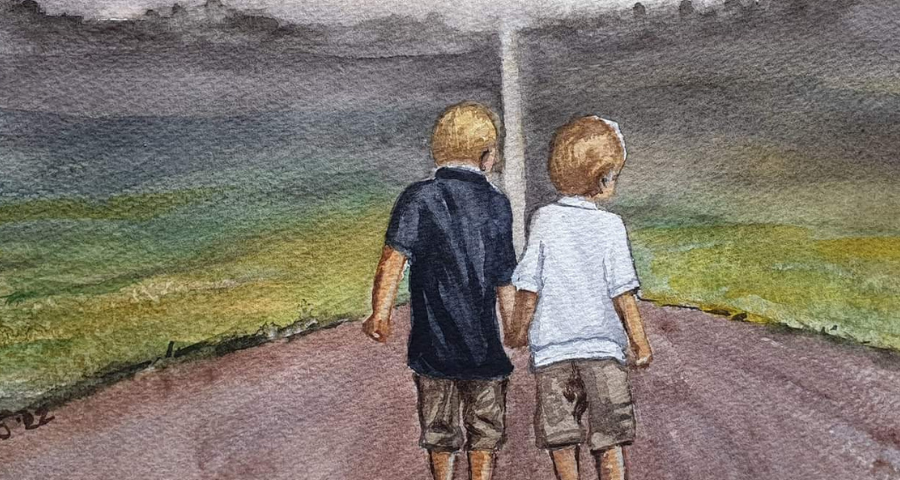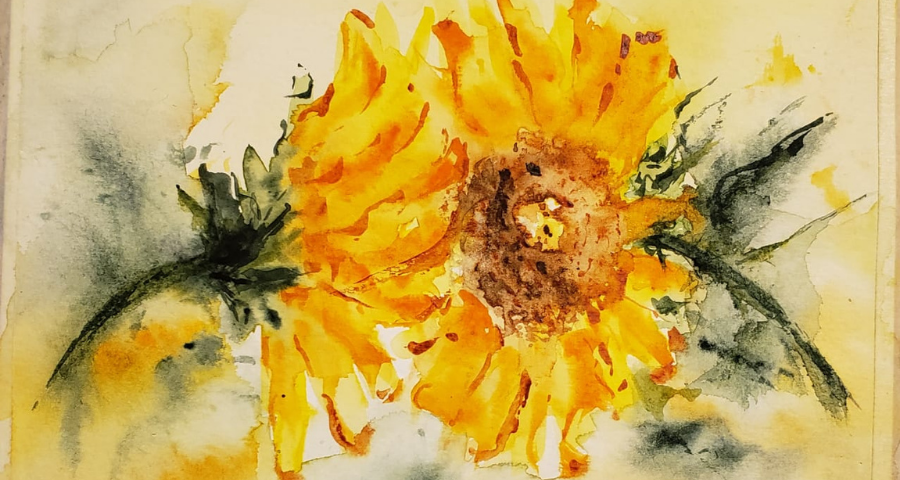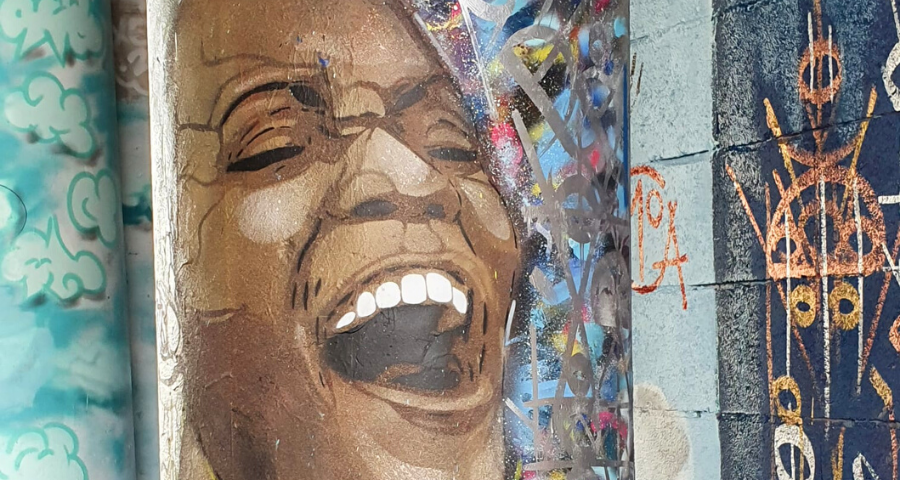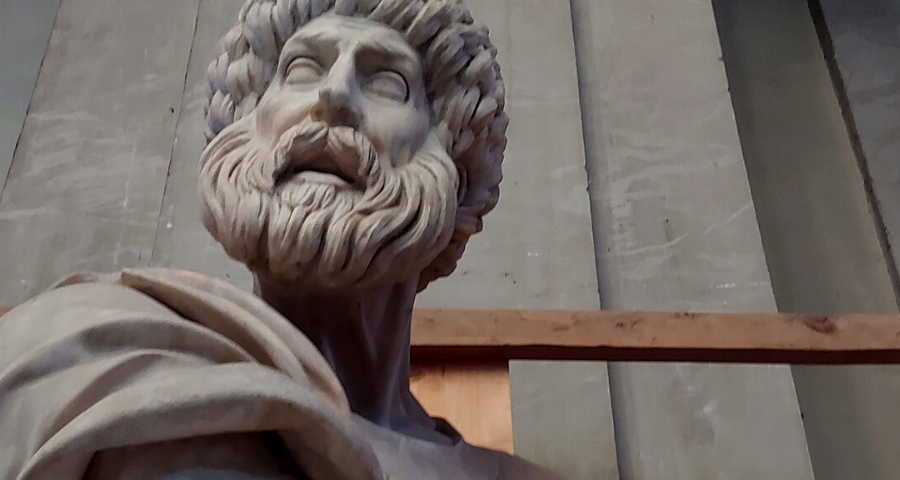The sign and the flesh/6 – But the false prophets speak of God or ideals and do not know how to defend humanity
By Luigino Bruni
Published in Avvenire 09/01/2022.
“As important as it is that we share the pain of man today together, it is even more important that we feel where it comes from together; it is only from there, starting from the ground, that we can be granted the true hope of healing.”
Martin Buber, The Hebrew Humanist
In addition to the priests, Hosea extends his accusation of corruption to politicians and rulers, who have betrayed their calling to serve justice, thereby telling us something very important.
«Hear this, you priests! Pay attention, you Israelites! Listen, royal house! This judgment is against you: You have been a snare at Mizpah, a net spread out on Tabor» (Hosea 5,1-2). Hosea the prophet continues his analysis of the corruption of the people, which, as he has previously told us (Hosea, chapter 4), is a question of idolatrous corruption. And after having identified the priests as those primarily responsible, now he is also extending his denunciation to the politicians, the elders, the officials of the king's court, offering us a profound and original description of the forms that idolatry assumes in the Bible, in the voice of the prophets, in everyone's life.
The beginning and centre of the argument is still the idolatry of the priests, an idolatry that leads the people on the wrong religious and theological paths. The most important and interesting dimension of this chapter, however, concerns the idolatry of politicians and rulers, that which is expressed in the civil, social and economic sphere. A sign that we are not merely talking about worship and religion here are the names mentioned: Mizpah, Mount Tabor and Shittim are not places of sanctuaries in Israel (like Bethel or Dan); they are probably names of military fortresses, and Mizpah was an important political and commercial centre of the North. Hosea explicitly tells us that the heart of this political corruption is the non-exercise of justice. The doctors of the law, the politicians, the elders of Israel, the king and his court of officials should have exercised the law above all, but they did not. In the Bible, justice means many things; its semantic field is very broad. Here, justice is mispat, a dimension that refers to the concrete exercise of law and laws, therefore to social, civil, criminal, economic justice, that essential pillar of every community that has its roots in equity. Justice has a place in every social and economic relationship, but the category that it must protect as its first task are the poor, the weak and the most fragile. Hosea cries out because instead of freeing the oppressed and the victims, politicians and officials have become hunters and fowlers, laying traps and snares into which the very ones who were meant to be freed and protected have fallen. The perversion of power and law is that from being a means of guarantee for honest and vulnerable people, in the hands of the ruling class it has been transformed into instruments of condemnation and capture. In all peoples and in all societies there has always been the tendency of the ruling classes to use to the power they inherited, usurped or, later on, obtained by voting, to their own advantage. However, once they have done so, and continue to do so to this day, politics and rulers deny the dignity of their ministry, perverting the profound sense of authority with which they have been vested. In particular, they deny and cancel law and justice, designed by God and wisdom tradition, as the armour and shield of victims.
Hosea's stroke of genius is to think and say that this corruption of law is in fact idolatry: «Ephraim, you have now turned to prostitution» (Hosea 5,3). In Hosea's theology, prostitution is synonymous with idolatry. Why is political and legal corruption idolatry? Why can idolatrous sin be a civil, political, juridical matter and not only a strictly religious one, only belonging to the sphere of the sacred?
In the Bible, there is no political and legal action that is not immediately and directly linked to the Covenant with YHWH. Its secularism is different from ours. The Torah itself is declined as commandments, as a code (of Mount Sinai), as a gift and inheritance of even juridical norms. Not only is Moses a lawgiver, his God is too. And we already knew this, even without Hosea and the prophets. Therefore, there must therefore be something more and very precious in Hosea's denunciation of Ephraim (Israel).
First, we must remember that in the Bible, prophets are the guardians of law because they know that without protecting justice it is impossible to protect the poor. The law is the first, and sometimes only, home of the poor and justice is its cloak. There is therefore a deep bond and an intimate friendship between the law and the prophets. In denouncing the violation of the law, Hosea is in fact in the company of Isaiah, Jeremiah, Micah and all the prophets, who all acted as the "watchmen" (shomerim) of the people on behalf of YHWH. Sentinels of the city and of the temple, but also guardians of the law, and therefore of the poor, orphans, widows, foreigners, slaves, servants, debtors, prisoners. Of all the marginalized and discarded, who from the periphery become central when looking at the world from the perspective of the law.
This is why in the prophetic books we find constant references to a vocabulary that has nothing to do with the religious or cult related sphere. To the prophets, debts, usury, ransoms, coins, payments, deposit and pledge... are all words that the same weight of love, fidelity and mercy. Because they know, by vocation and by having experienced and learned it om their own flesh and from the people, that the highest theological words become vanitas, hesed turns into hevel, if they do not take the form of the lowest words of the offended and persecuted women and men. And because the prophets know better than anyone that there is no more common and terrible manipulation than that which arises when heavenly words about God are not also preceded and followed by earthly words about men. A true prophet knows that the first sign of false prophets is their inability to defend men and women because they are too busy defending God.
Moreover, it is precisely here where the virus of idolatry lurks, that its poison is able to infiltrate. In the Bible, God is true because his faith is different and opposite from the worship of idols. The idol is a religion of worship only; it functions only in its own sacred ground. An athlete who knows how to do fabulous performances, but only at home. Idols do not give commandments, they do not enter into the cause of the orphans or the widows, they do not care about a debtor's cloak for the night, nor do they defend Naboth's vineyard. The idol only consumes liturgy, its sacred place coincides with its enclosure. The God of Israel does not. It took the exile and the prophetic strength of Ezekiel and the Second Isaiah, but the Bible eventually understood that YHWH was not only present in the temple, and so he could continue to be alive and to operate even along the rivers of Babylon, without the need for sacred places.
The Covenant is also a matter of law, of justice - more than half of Moses' commandments concern relationships between people. The Sabbath is a different relationship with God, of course, but it is a different day also for the relationships between us, with the poor and the foreigner, with work, with the animals, and with the earth. Thus, the great message of Hosea is indeed very important, perhaps even decisive. It tells us that we already find ourselves inside an idolatrous cult when we reduce religion only to worship, when we confine God to his sacred place and do not allow him to become the ethos of our relationships, law and justice. A god who only becomes a religious cult is an idol.
And if it is true that the Bible, especially in its prophetic pages, is also a wonderful map to enable us to return home from crossing deserts and exile, then these words from Hosea really speak loud and clear. When a process of decline takes place in a community, even if it begins (as Hosea says) from the "priests", that is, in a purely religious or spiritual sphere, it is never a purely religious decline. Its morphology is more complex. The crisis immediately affects the organizational sphere, enters into the practices that affect the equity in relationships, the governance of vertical and horizontal relationships, financial statements, the management of wealth and poverty, the openness to the weak, the bank account. However, unlike the prophets (either because of their absence, or because we do not listen to them), we tend to think that the crises and the decline of our communities are merely a spiritual matter, which depend on our lacking or insufficient religious life. Thus, we neglect "law and justice", making endless meetings and retreats to return to the lost spiritual radicalism, and we often end up blaming others and ourselves because we are not radical and spiritual enough anymore. We neglect to look at the organizational and relational "traps and snares" of the management of power, thinking that they are only secondary things and not the ones on which we should focus our efforts to bring forth reform and renewal. Thereby, we do not understand that the idolatries that have penetrated our people have clothed and disguised themselves with the wrong relational and community practices, and that is where they live, spread and infect the whole body.
Also, because unlike what happened in Hosea’s time and age, in our time, sometimes crises start from wrong, unjust, unfair interpersonal relationships, which day after day reach even the most intimately spiritual life - these infections start from the body and reach the heart, first they attack the skins then the wine. These are crises that cannot be cured until we look at our relationships, our hierarchies, our community neuroses. Too many crises become unbeatable traps and snares because, worried about heaven, we do not care enough for the earth beneath our feet. A two-level logic is often triggered: first, we reform our spiritual life and then the practical aspects. Without knowing that this logic is not the biblical one and it is not that of life, it does nothing but make us sink deeper into our traps every day. Crises are faced by simultaneously working on the vertical and horizontal axes of our relationships: «When they go with their flocks and herds to seek the Lord, they will not find him; he has withdrawn himself from them» (Hosea 5,6). Worship and sacrifices on the altars are not needed to return to a good and right relationship with God, the conversion of justice would be needed: «When they celebrate their New Moon feasts, he will devour their fields» (Hosea 5,7).
Community crises would be simple, and would almost always win us over, if they were only religious and spiritual matters. They are profound and serious because they concern all life, flesh and blood, because they learn to pronounce all our words. And if we want to dialogue with them, understand them and then try to overcome them, we need to use all our words, especially those that we rarely use because we do not consider them spiritual enough. Certain demons are only chased away by calling them by their name.













